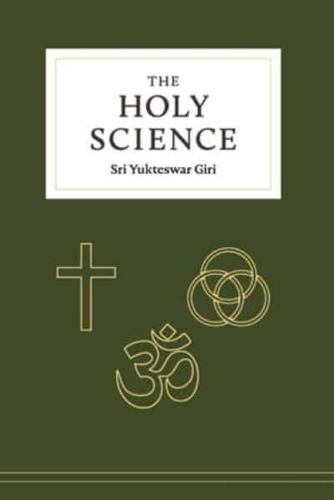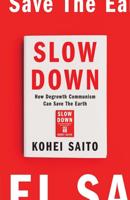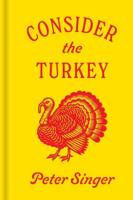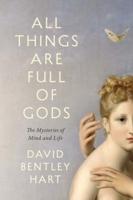Publisher's Synopsis
The Holy Science is a book of theology written by Swami Sri Yukteswar Giri in 1894. The text provides a close comparison of parts of the Christian Bible to the Hindu Upanishads, meant "to show as clearly as possible that there is an essential unity in all religions...and that there is but one Goal admitted by all scriptures."
Swami Sri Yukteswar Giri was born Priya Nath Karar in 1855 to a wealthy family. As a young man, he was a brilliant student of math and science, astrology and astronomy. He joined a Christian missionary school where he studied the Bible and later spent two years in medical school.
After completing his formal education, Priya Nath married and had a daughter. But he continued his intellectual and spiritual pursuits, depending on the income from his property to support himself and his family.
After the death of his wife, he entered the monastic Swami order and became Sri Yuktesvar Giri, before becoming a disciple of famed guru Lahiri Mahasaya, known for his revitalization of Kriya Yoga. Then in 1894, Sri Yuktesvar Giri met Mahavatar Babaji, an ageless wise man who is said to have lived for untold hundreds of years. At this meeting, Mahavatar Babaji gave Sri Yuktesvar the title of Swami, and asked him to write this book comparing Hindu scriptures and the Christian Bible. Swami Sri Yuktesvar obeyed.
He also founded two ashrams, including one in his ancestral home. He lived simply as a swami and yogi, devoted to disciplining his body and mind, and thus to liberating his soul. Among his disciples was Paramahansa Yogananda, credited with bringing yoga and meditation to millions of Westerners.
The Holy Science consists of four chapters. The first is titled "The Gospel," and is intended to "establish the fundamental truth of creation." Next is "The Goal," which discusses the three things all creatures are seeking: "Existence, Consciousness, and Bliss."
Chapter three, "The Procedure," is the most practical of the sections. It describes the natural way to live for purity and health of body and mind. The final chapter is called "The Revelation," and discusses the end of the path for those who are near the "three ideals of life."
Swami Sri Yukteswar also displays his impressive knowledge and understanding of astrology by proposing his theory of the Yuga Cycle.
Each yuga is an age of the world that tracks the movement of the sun, Earth, and planets. Each age represents a different state of humanity. There are four yugas:
- Satya Yuga is the highest and most enlightened age of truth and perfection.
- Treta Yuga is the age of thought and is more spiritually advanced than Dwapara Yuga and Kali Yuga.
- Dwapara Yuga is an energetic age, although not a wise one. During this yuga, people are often self-serving and greedy. The age is marked by war and disease.
- Kali Yuga is the age of darkness, ignorance, and materialism. This is the least evolved age.
Today, The Holy Science is highly respected among those seeking to understand the relationships between world religions and cultures. While some still believe that we are in Kali Yuga, many others believe that Swami Sri Yukteswar was accurate, and that his calculations correct previous errors that artificially inflated the length of the Yuga Cycle.







